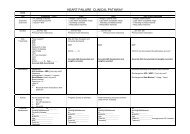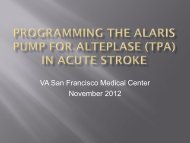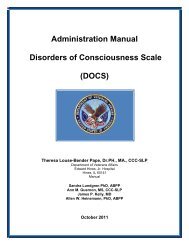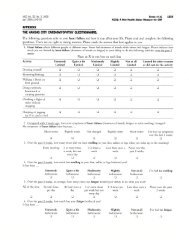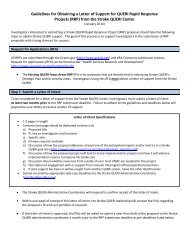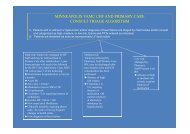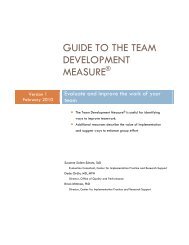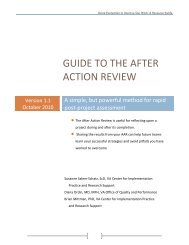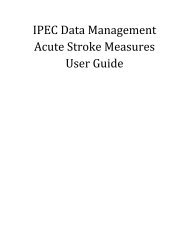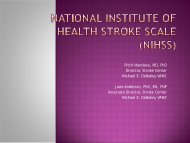The Veteran Supported Education Service Treatment Manual: VetSEd
The Veteran Supported Education Service Treatment Manual: VetSEd
The Veteran Supported Education Service Treatment Manual: VetSEd
You also want an ePaper? Increase the reach of your titles
YUMPU automatically turns print PDFs into web optimized ePapers that Google loves.
Evidence-Based Practices for Treating Mental Illness, Substance Abuse and Co-<br />
Occurring Disorders<br />
As you work with <strong>Veteran</strong>s enrolled in a SEd program who have mental illness,<br />
substance abuse, or COD, it will be helpful for you to have a general understanding of<br />
some of the evidence-based practices used to treat substance abuse and mental illness. In<br />
this section, we will briefly discuss some these approaches. Because an exhaustive<br />
description of all evidence-based practices used to treat mental illness and substance<br />
abuse is beyond the intent of this section, we strongly encourage you to visit the<br />
Substance Abuse and Mental Health <strong>Service</strong>s Administration (SAMHSA) Web site<br />
www.samhsa.gov for further information.<br />
iv.<br />
Approaches to Mentoring <strong>Veteran</strong>s with Co-Occurring Disorders<br />
Current approaches to treating <strong>Veteran</strong>s with co-occurring disorders are described below.<br />
Motivational Enhancement<br />
Motivational Enhancement is designed to enhance motivation by helping <strong>Veteran</strong>s<br />
resolve ambivalence about addressing and ultimately changing their problem behaviors<br />
(e.g. substance abuse; or perhaps more commonly found in your work, completing<br />
assignments throughout the semester rather than going out for drinks with buddies).<br />
Motivational Enhancement techniques are also designed to enhance rapport between<br />
<strong>Veteran</strong>s and helpers, such as <strong>VetSEd</strong> providers, and are particularly useful during initial<br />
sessions. <strong>The</strong> acronym ―OARS‖ is used to identify the fundamental skills of<br />
Motivational Enhancement: Open-ended questions, Affirming, Reflective listening, and<br />
Summarizing.<br />
Open-ended questions<br />
Open-ended questions are questions that are designed to encourage <strong>Veteran</strong>s to elaborate<br />
about their thoughts and feelings and provide details about their situations. In other<br />
words, open-ended questions stand in opposition to questions that ask for a simple "yes"<br />
or "no" response from the client. Additionally, open-ended questions should not sound<br />
judgmental. For example, unless the <strong>Veteran</strong> has expressed concern about his/her<br />
drinking, the question ―What do you intend to do about your use of alcohol?‖ will only<br />
elicit client resistance. Open-ended questions are designed to help create internal<br />
motivation for change. Questions that sound judgmental will only cause clients to resist<br />
their treatment provider‘s influence. More is said about how to deal with such resistance<br />
below.<br />
Affirming<br />
Affirmations are a way of validating a <strong>Veteran</strong>‘s experiences and/or feelings, and to also<br />
indicate that you are present and focused. However, it is important to note that this does<br />
105 | P a g e



